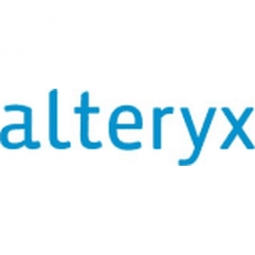Technology Category
- Infrastructure as a Service (IaaS) - Cloud Databases
- Platform as a Service (PaaS) - Application Development Platforms
Applicable Industries
- Education
- Healthcare & Hospitals
Use Cases
- Time Sensitive Networking
- Virtual Training
Services
- Training
About The Customer
Verato is a startup in the healthcare industry, specializing in patient identity resolution and master person index. The company uses a unique cloud-based solution that employs algorithms to match vendor databases with patient data, solving millions of identity queries every day. This solution helps hospitals match medical records and patient data with greater accuracy, improving patient care. Verato is an emerging technology in the healthcare market, with a unique product that traditional master person index solutions cannot quickly scale to meet today's healthcare demands. The company is a disrupter on a mission to help healthcare delivery organizations improve care coordination for and engagement of their patients.
The Challenge
Verato, a startup specializing in patient identity resolution and master person index, recognized the need for higher-quality data in the healthcare market. The company uses a unique cloud-based solution that employs algorithms, or Referential Matching, to match vendor databases with patient data. This solution helps hospitals match medical records and patient data with greater accuracy, improving patient care. However, Verato faced a significant challenge in analyzing vast volumes of patient identity data. The company had no standard tool in place to analyze millions of records quickly and efficiently. Much of the work was being done in Python scripts, which did not allow for ad-hoc data analysis. Furthermore, Verato had to process ad-hoc requests on tight deadlines, with each customer providing 600 million rows of data. The company needed a solution that could automate workflows, process data inputs in a timely fashion, and connect to their Slack files and Mongo database.
The Solution
Verato found its solution in Alteryx, a data analytics platform that could handle large amounts of data. Alteryx's easy usability and repeatability through automated workflows gave Verato the confidence that they had found the right solution. The platform allowed Verato to build workflows that extracted data from their data sources, enabling the team to automate their processes. This automation allowed the team to plan workflows in advance, knowing that they would get the answers they needed to customer questions and patient data with ease and efficiency. Alteryx's drag-and-drop functionality eliminated the need for long SQL or Python scripts, making it easy to use on a daily basis. Additionally, the Alteryx Community and customer support provided invaluable training and troubleshooting, enabling Verato's team to move forward with their mission.
Operational Impact
Quantitative Benefit

Case Study missing?
Start adding your own!
Register with your work email and create a new case study profile for your business.
Related Case Studies.

Case Study
Hospital Inventory Management
The hospital supply chain team is responsible for ensuring that the right medical supplies are readily available to clinicians when and where needed, and to do so in the most efficient manner possible. However, many of the systems and processes in use at the cancer center for supply chain management were not best suited to support these goals. Barcoding technology, a commonly used method for inventory management of medical supplies, is labor intensive, time consuming, does not provide real-time visibility into inventory levels and can be prone to error. Consequently, the lack of accurate and real-time visibility into inventory levels across multiple supply rooms in multiple hospital facilities creates additional inefficiency in the system causing over-ordering, hoarding, and wasted supplies. Other sources of waste and cost were also identified as candidates for improvement. Existing systems and processes did not provide adequate security for high-cost inventory within the hospital, which was another driver of cost. A lack of visibility into expiration dates for supplies resulted in supplies being wasted due to past expiry dates. Storage of supplies was also a key consideration given the location of the cancer center’s facilities in a dense urban setting, where space is always at a premium. In order to address the challenges outlined above, the hospital sought a solution that would provide real-time inventory information with high levels of accuracy, reduce the level of manual effort required and enable data driven decision making to ensure that the right supplies were readily available to clinicians in the right location at the right time.

Case Study
Gas Pipeline Monitoring System for Hospitals
This system integrator focuses on providing centralized gas pipeline monitoring systems for hospitals. The service they provide makes it possible for hospitals to reduce both maintenance and labor costs. Since hospitals may not have an existing network suitable for this type of system, GPRS communication provides an easy and ready-to-use solution for remote, distributed monitoring systems System Requirements - GPRS communication - Seamless connection with SCADA software - Simple, front-end control capability - Expandable I/O channels - Combine AI, DI, and DO channels

Case Study
Driving Digital Transformations for Vitro Diagnostic Medical Devices
Diagnostic devices play a vital role in helping to improve healthcare delivery. In fact, an estimated 60 percent of the world’s medical decisions are made with support from in vitrodiagnostics (IVD) solutions, such as those provided by Roche Diagnostics, an industry leader. As the demand for medical diagnostic services grows rapidly in hospitals and clinics across China, so does the market for IVD solutions. In addition, the typically high cost of these diagnostic devices means that comprehensive post-sales services are needed. Wanteed to improve three portions of thr IVD:1. Remotely monitor and manage IVD devices as fixed assets.2. Optimizing device availability with predictive maintenance.3. Recommending the best IVD solution for a customer’s needs.

Case Study
HaemoCloud Global Blood Management System
1) Deliver a connected digital product system to protect and increase the differentiated value of Haemonetics blood and plasma solutions. 2) Improve patient outcomes by increasing the efficiency of blood supply flows. 3) Navigate and satisfy a complex web of global regulatory compliance requirements. 4) Reduce costly and labor-intensive maintenance procedures.

Case Study
Harnessing real-time data to give a holistic picture of patient health
Every day, vast quantities of data are collected about patients as they pass through health service organizations—from operational data such as treatment history and medications to physiological data captured by medical devices. The insights hidden within this treasure trove of data can be used to support more personalized treatments, more accurate diagnosis and more advanced preparative care. But since the information is generated faster than most organizations can consume it, unlocking the power of this big data can be a struggle. This type of predictive approach not only improves patient care—it also helps to reduce costs, because in the healthcare industry, prevention is almost always more cost-effective than treatment. However, collecting, analyzing and presenting these data-streams in a way that clinicians can easily understand can pose a significant technical challenge.




